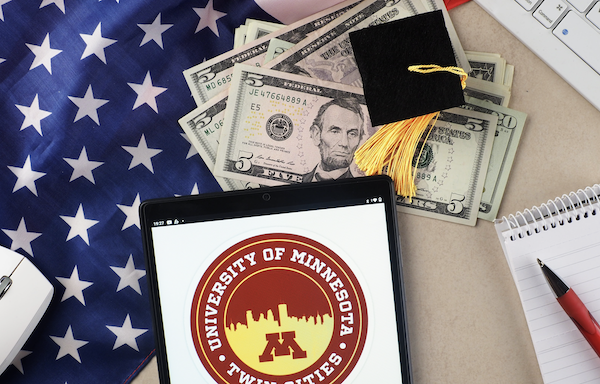Politics
BREAKING: College Is Now Free For Illegals In Minnesota

In an unprecedented move, the state of Minnesota has unveiled its “North Star Promise” program, offering free college tuition to all residents whose families earn less than $80,000 annually, irrespective of their immigration status. While some celebrate this as an inclusive initiative, it raises pertinent questions about the fairness, fiscal responsibility, and potential long-term consequences of such a policy.
The program’s eligibility criteria offer another point of contention. To qualify, students must graduate from a Minnesota high school, live in the state for at least 12 months without being enrolled in college more than half-time, and maintain good academic standing.
The State of Minnesota just passed a law that makes college free for families who make under $80K a year
👀
— Daily Dose (@ddofinternet) May 28, 2023
Starting from the academic year 2024-2025, the North Star Promise program aims to give financial assistance to those students. The scholarships will cover 100% of tuition and fees after deducting grants and other scholarships.
The program’s stipulations also include institutional aid, indicating that public postsecondary educational institutions cannot reduce the institutional gift aid offered to a student eligible under this program.
The program’s introduction is a clear indication of the direction in which Minnesota’s educational policy is heading. As the program is set to commence on July 1, 2024, only time will tell what impact this bold move will have on Minnesota’s education landscape.
The key points of the program are as follows:
- Eligibility: An eligible student is a resident student who is enrolled in a public postsecondary educational institution or Tribal college. They must have completed the Free Application for Federal Student Aid (FAFSA) or the state aid application, have a family adjusted gross income below $80,000, not have earned a baccalaureate degree at the time the scholarship is awarded, be enrolled in at least one credit per semester, and meet satisfactory academic progress.
- Scholarship: Scholarships will cover 100% of tuition and fees remaining after deducting grants and other scholarships. If funds remain, grants shall be awarded to eligible students, covering 100% of tuition and fees and up to 50% of the amount of a Pell grant based on household size, income, and federal needs analysis. The commissioner has discretion to adjust the grant amount based on available funds.
- Institutional Aid: From the 2024-2025 academic year, public postsecondary educational institutions cannot reduce the institutional gift aid offered to a student eligible under this program unless the student’s gift aid exceeds the annual cost of attendance. They are also not to consider receipt or anticipated receipt of funds from this program when considering a student for qualification for institutional gift aid.
- Duration and Payment: Scholarships are for a period of one semester and can be renewed if the student continues to meet the eligibility conditions. Scholarships can be provided for up to 60 credits for the completion of a certificate or associate degree and up to 120 credits for a bachelor’s degree. The scholarship is paid directly to the institution where the student is enrolled.
- Termination: A scholarship can be terminated if the student fails to meet satisfactory academic progress or if there’s substantial noncompliance with the program requirements.
- Reporting: Public postsecondary institutions and Tribal colleges that administer financial aid programs for students with a family income below $80,000 must provide student-level data on award recipients to the Office of Higher Education. The commissioner of higher education is required to submit annual reports to legislative committees on the status of the scholarship fund and participation data.
- Administration: The Office of Higher Education is authorized to administer the program. If funds are insufficient, the office can determine the scholarship amount or number of scholarships awarded.
- The program is set to commence on July 1, 2024.

